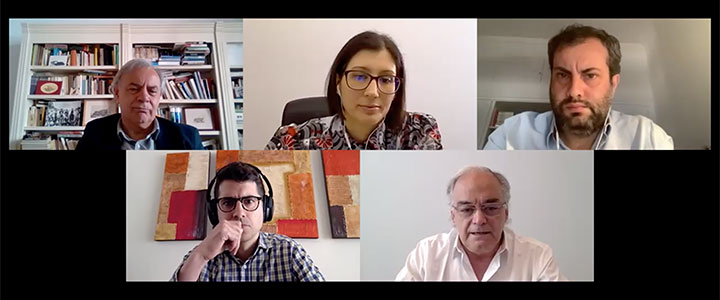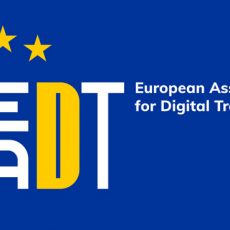
When the EU territory slowly recovers its activity following the worst weeks of the coronavirus pandemic, the debate on using applications as tools to control possible new outbreaks will still be open. As we have already discussed in this blog, there are basically two schools of thought when it comes to processing the data created by these apps – centralised and decentralised – but what really has drawn attention from the media, politicians and experts is the role in these tools played by Apple and Google, who have offered to collaborate with the institutions.
What are the risks from these giants participating in tracing systems that can be set up to fight the coronavirus? Should citizens trust these companies more or less than they do their own public powers? Does Europe have an alternative to the solutions coming from Silicon Valley?
The online newspaper El Confidencial organised an online roundtable debate around these questions on Monday, May 18, with the participation of Ricardo Rodríguez Contreras, president of the EADT. Joining him were the MEPs Ibán García del Blanco (Progressive Alliance of Socialists and Democrats) and Esteban González Pons (European Popular Party) and a researcher on social effects of technology, Sara Degli Esposti, who works for the Spanish National Research Council (CSIC).
Current events resulted in the debate revolving around the use of data and privacy, but the speakers went even further, placing concepts such as ‘trust’ and ‘digital sovereignty’ at the heart of the discussion.
The first concept, trust, is fundamental for these applications to succeed, because if citizens do not download them and use them, they will be of no use. As Degli Esposti noted, for many years now “European citizens have had a trusting relationship with the tech giants, which is why these have become an oligopoly”. Contrast this situation with the mistrust of EU citizens to disclose data to their governments, despite these governments being elected by them. The speakers agreed that the position of strength companies like Google and Amazon have has been built upon the ingenuousness of the citizens themselves, who give up their data in exchange for services. But is this a balanced trade-off? González Pons says no: “We’re exchanging gold for trinkets. These companies are mapping us with our data”. The responsibility lies with each one of us, but also with the public powers, pointed out García del Blanco: “We need to give citizens a more complete perspective, one that allows them to more clearly discern what derives from a specific contract”.
In a tone not at all complacent, the debate made clear Europe’s disadvantaged position in the digital transition. But not everything is bleak. Rodríguez Contreras, who declared himself a “techno-optimist”, expressed the wish of the EADT for this situation to be used to “empower European citizens regarding the value of their data, putting an end to the ingenuousness. Hopefully we can be more ambitious and build European digital sovereignty”.
Other speakers also defended the concept of European digital sovereignty, in defence of European uniqueness as opposed to the models from the United States and, especially, China. “Europe represents various values that nobody is defending in the digital world”, stressed Sara Degli Esposti. “In this change of civilisation, we have to remember that our values are those from the enlightenment. The challenge of European digital sovereignty is an opportunity for our data to not belong to Google, Apple, Amazon…”, stressed García del Blanco.




